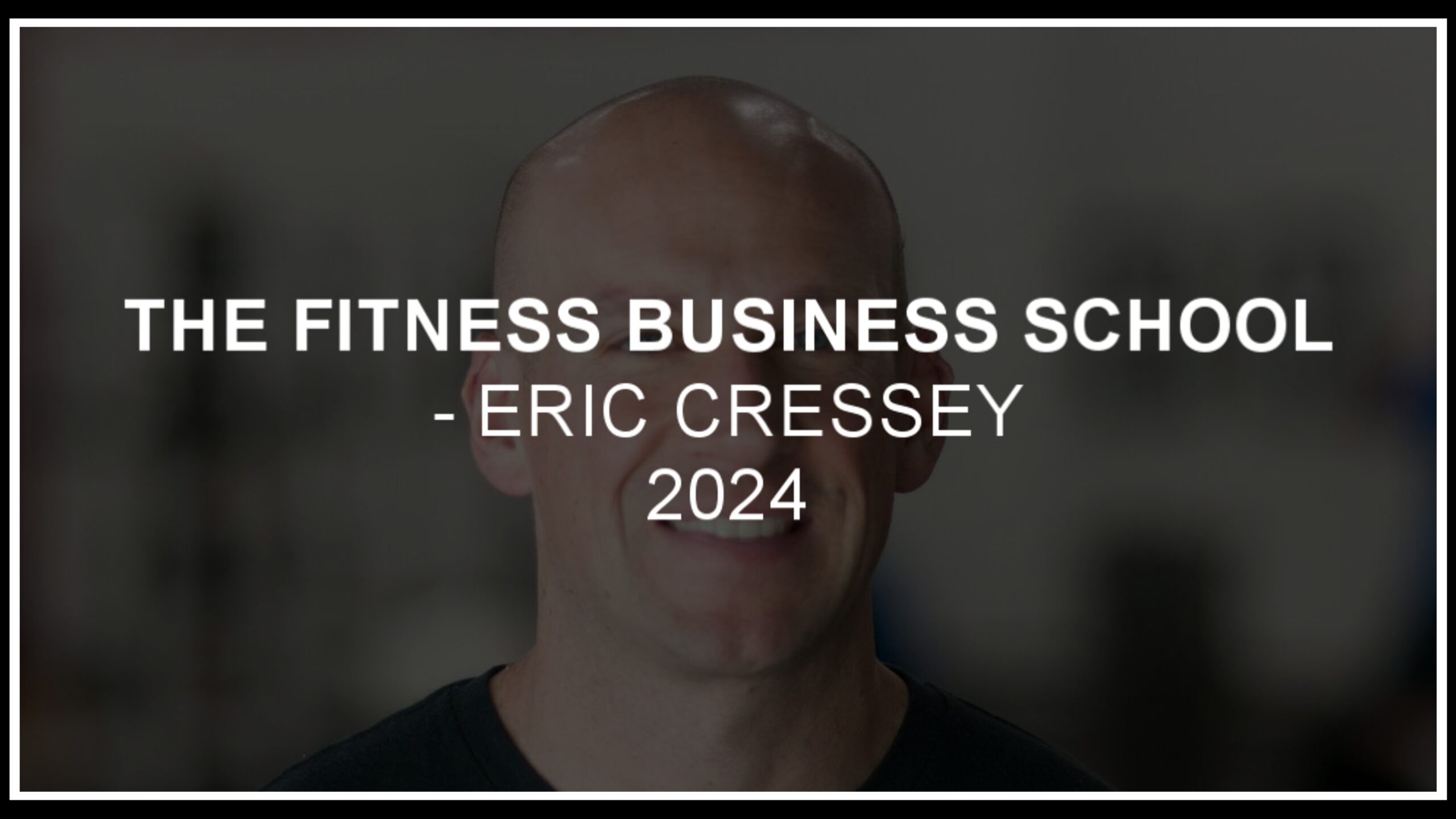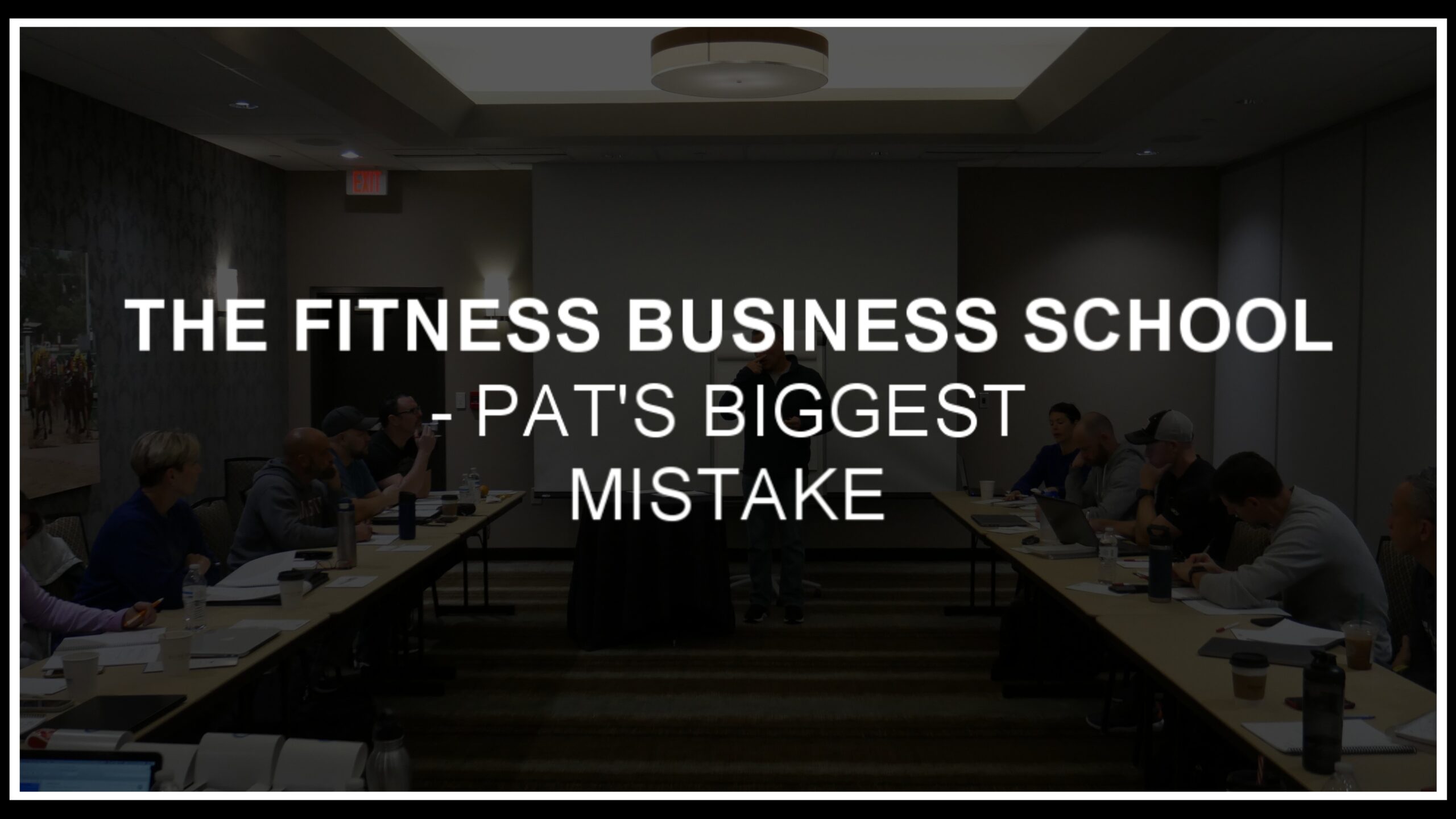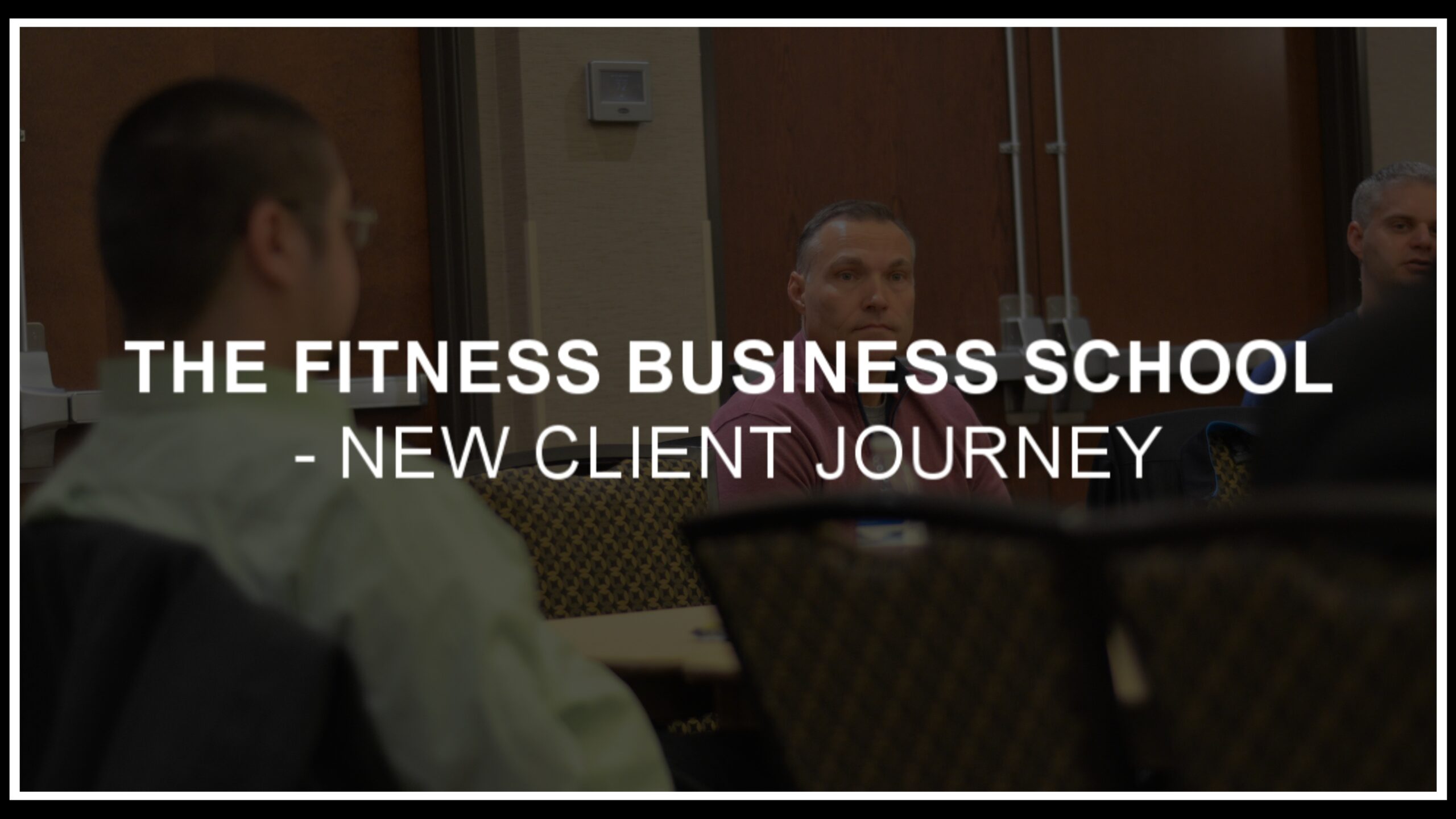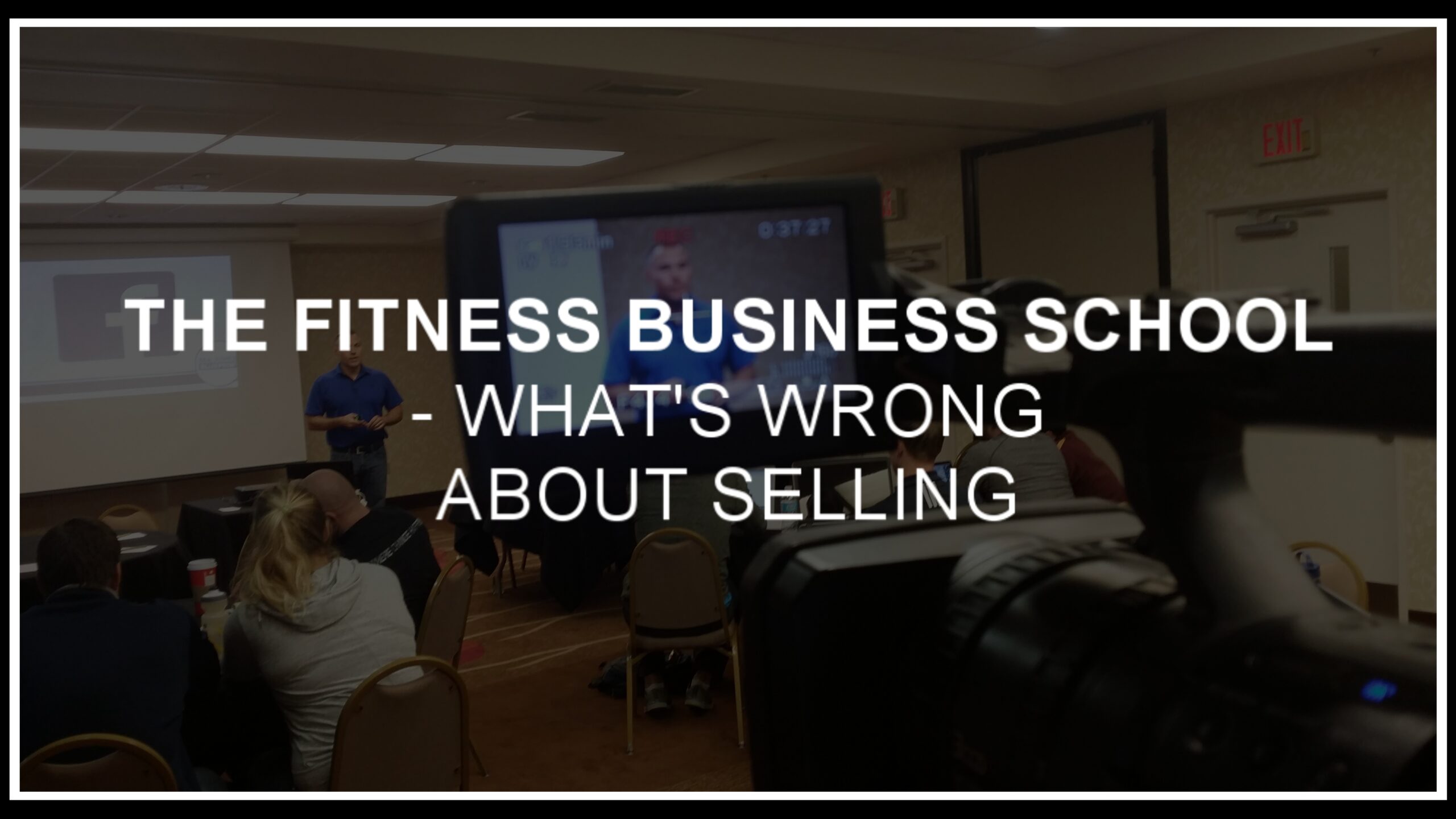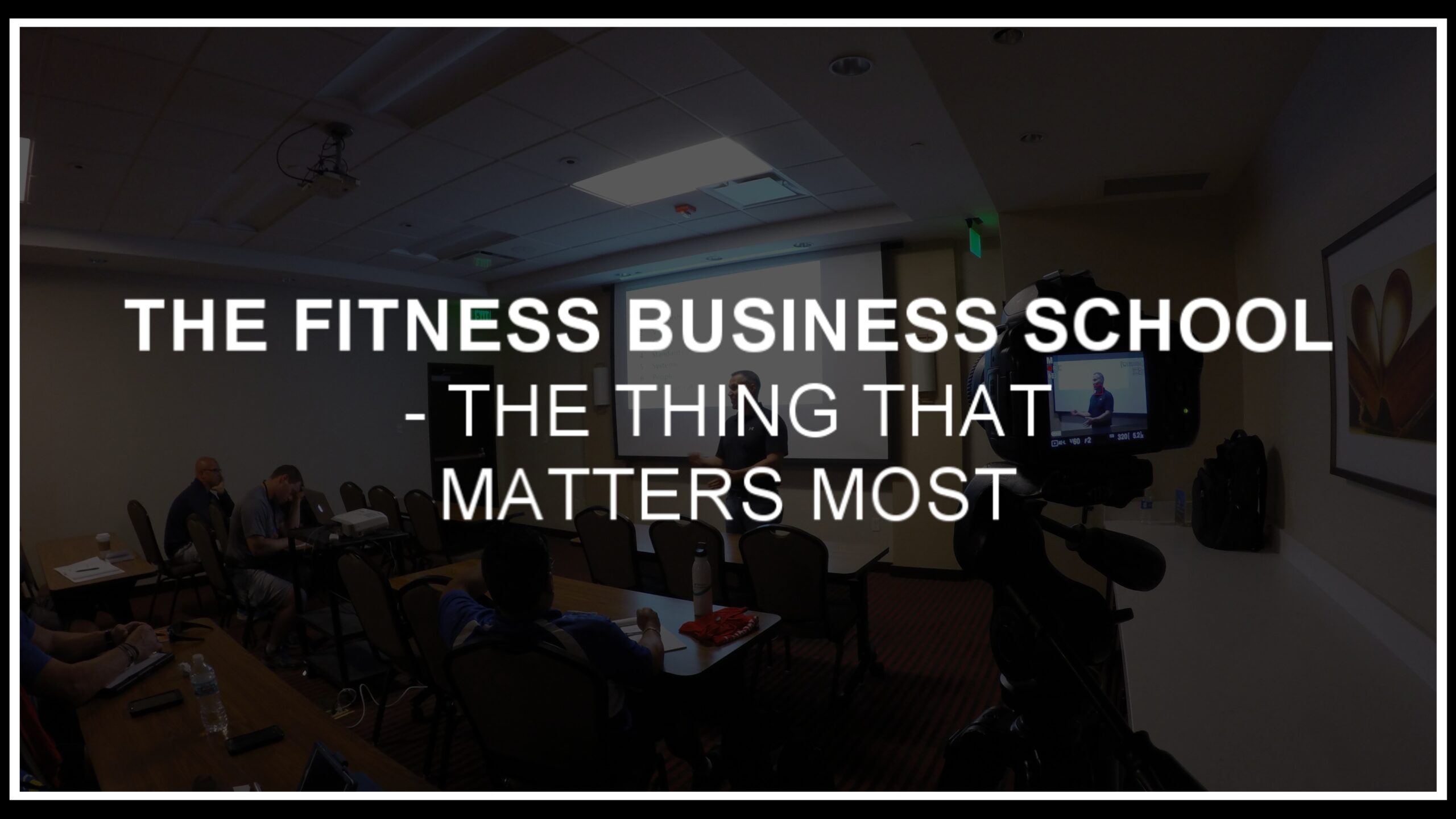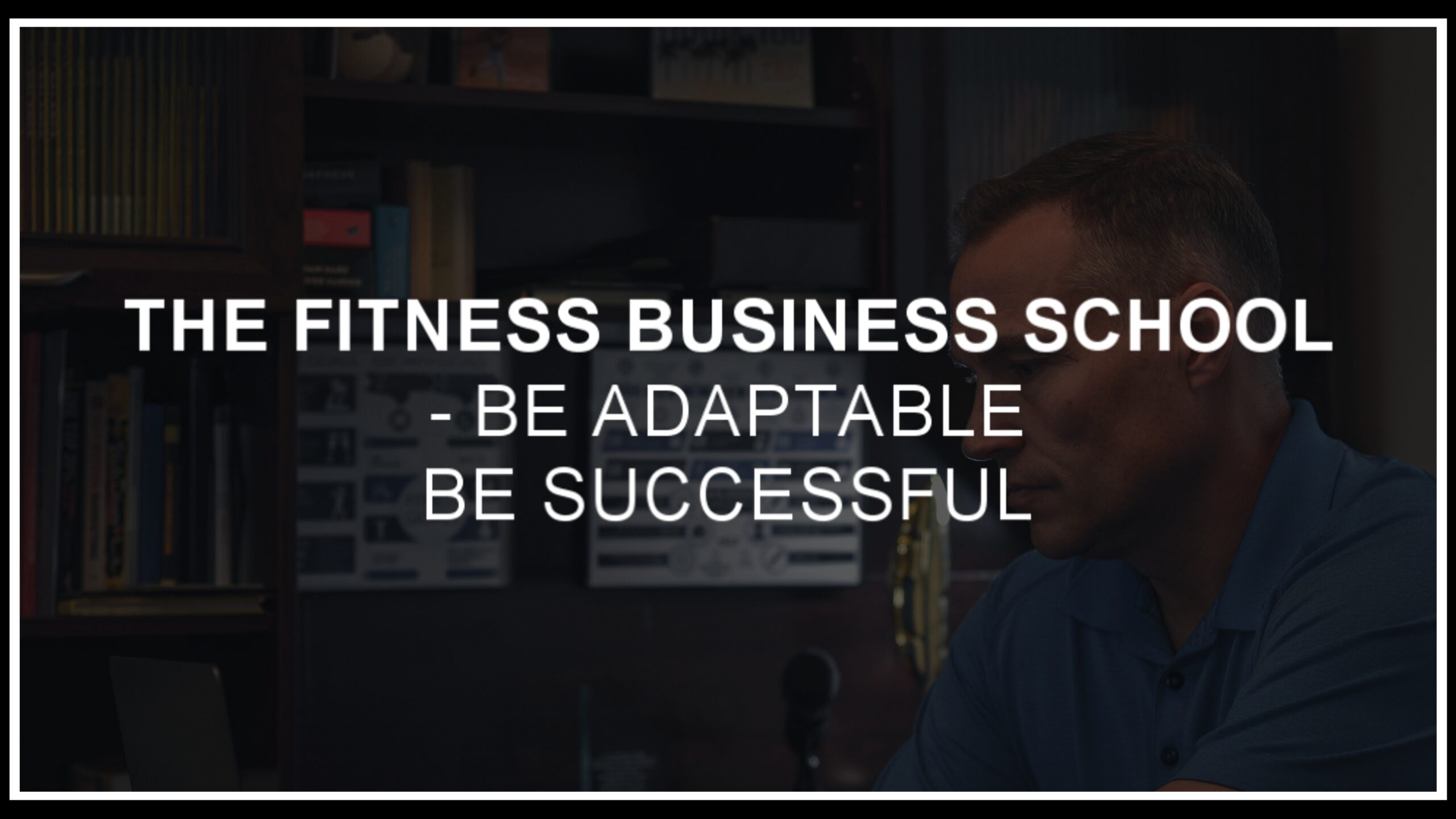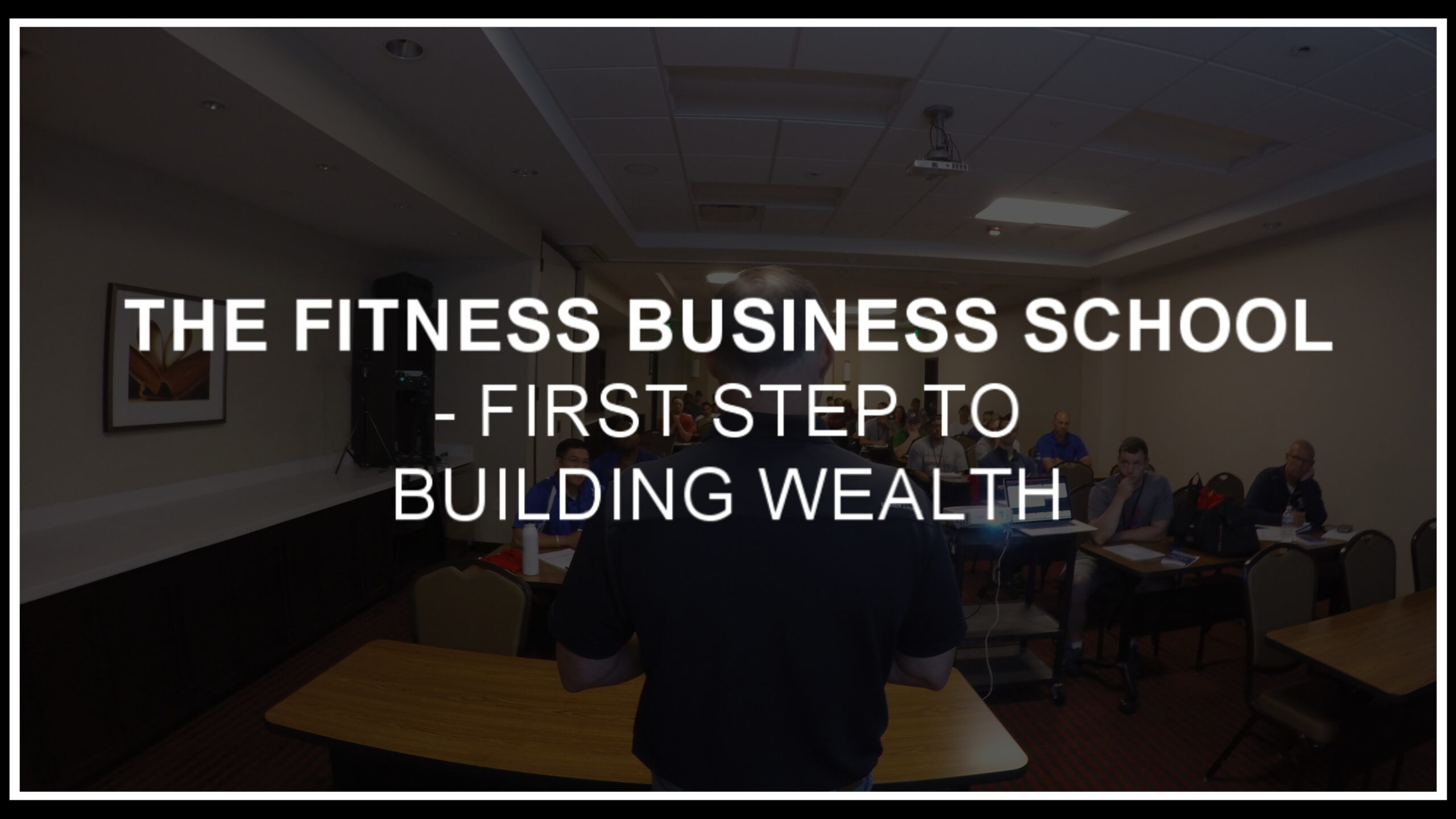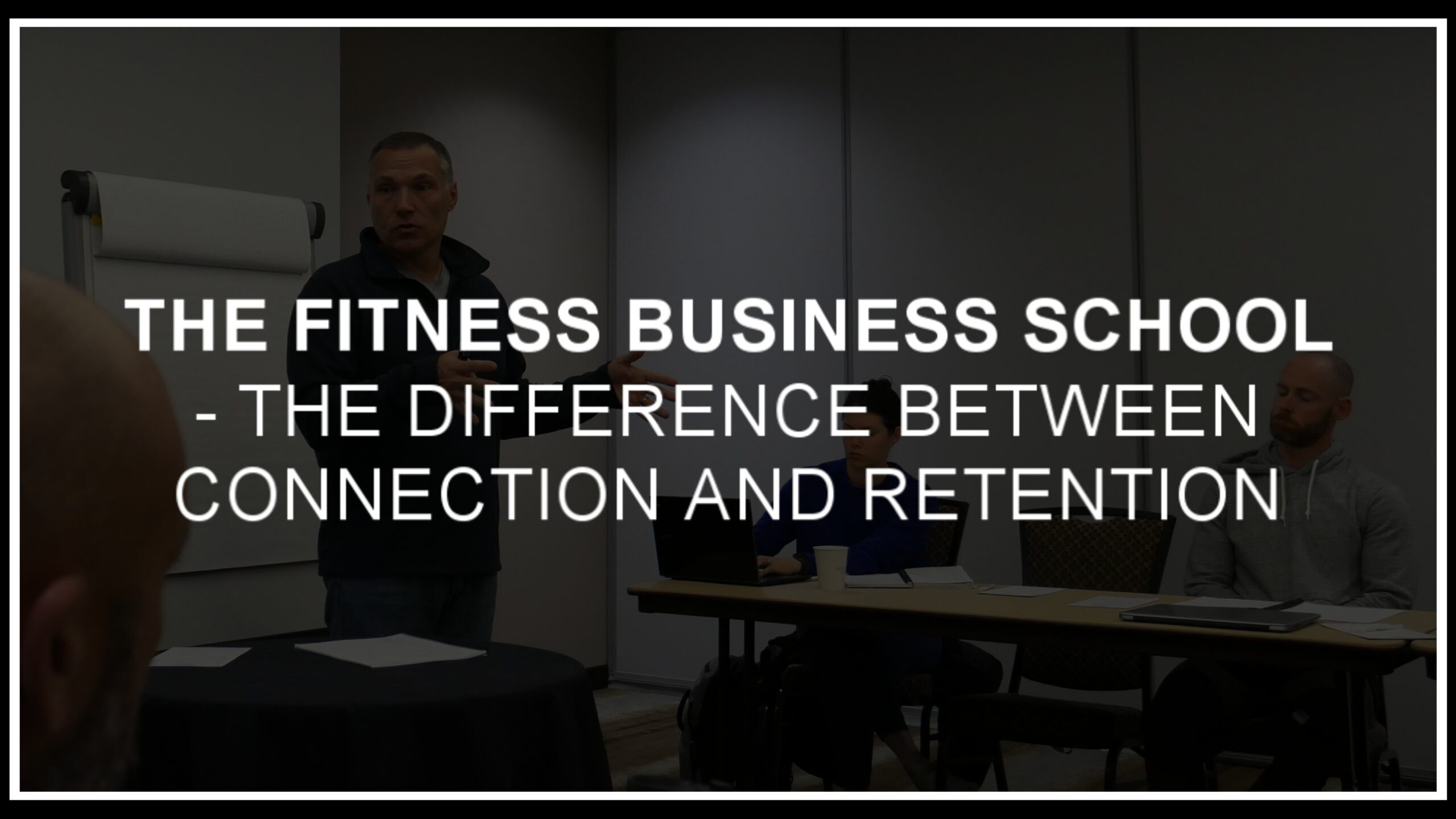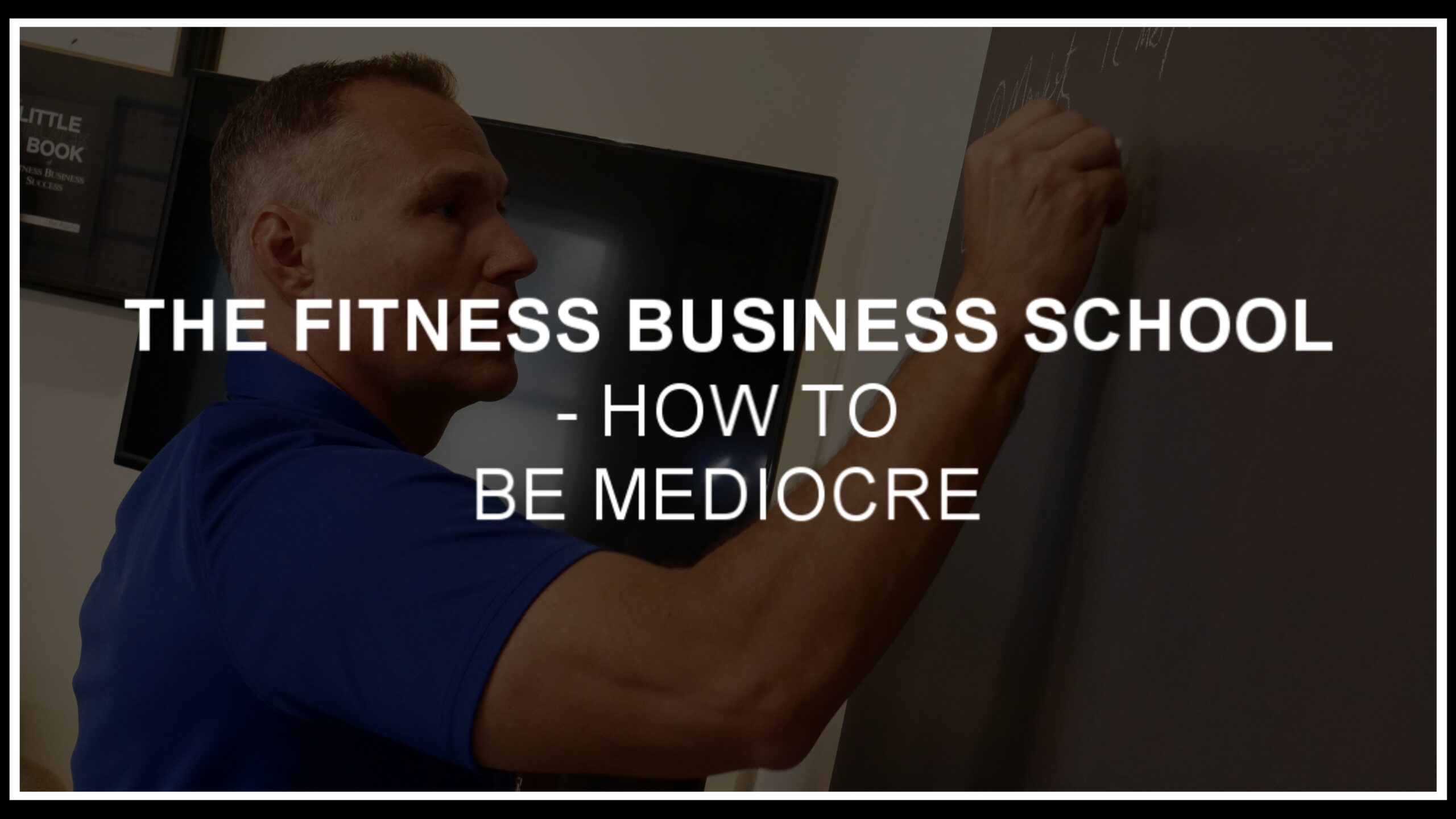Show Notes
In this episode of The Fitness Business School, Pat and Eric delve into the trials and triumphs of running a successful fitness business in an ever-evolving landscape where adaptability and growth often go hand-in-hand. Eric Cressey, the founder of Cressey Sports Performance, shares invaluable insights derived from his own journey, demonstrating how one can create a robust business model that combines passion and profit.
In the course of the conversation, Cressey details how he and his team navigated the COVID-19 pandemic, transitioning operations to respond to an unexpected influx of baseball players in Florida. He shares how flexibility and foresight have helped his business to not only survive, but thrive even in periods of turbulence. Cressey’s experience underscores the importance of adaptability and forward-thinking planning in dealing with unforeseen circumstances while also fostering sustainable growth.
Hey, Pat here and today I have my special guest that we do our annual episode. I’ve got Eric Cressey with me. Welcome to the Fitness Business school podcast, the show for fitness business owners who want to grow their income, increase their impact, and improve their lifestyle. Be sure to listen till the end of this episode because we have a brand new special offer exclusive for listeners.
So stay tuned. Eric probably doesn’t need much introduction, but I’m still going to give him a little introduction as we go. And Eric is the founder owner, and I say that knowing they’re co owners, but I don’t know the entire ownership structure of everything. Cressey Sports Performance. I know Pete has been with you along the way for the growth of all this.
You’ve got CSP in Massachusetts, CSP in Florida, but you’re also, what’s the exact title?
With the Yankees director of player health and performance.
Yes, I’m sure I would have fumbled right through that. And Eric’s kind of done a little bit of everything in the fitness performance landscape, from information products all the way through quarterbacking the entire department for the most renowned professional sports team in North America. There’s a lot there. And above all else, Eric has just been a wonderful friend for a long time now. We’re just talking about the length of that friendship before we started recording.
So welcome, Eric.
Thank you very much. That was a highlight of the year to do this.
I’d say the highlight probably was the championship that the girls won last night, right?
Yeah, I guess so. We’ll take it.
Eric’s diving into the u sports world that I feel like I’ve been immersed.
In for a while.
That could be a fun separate coming.
Up on ten, u softball and lots of gymnastics. You’re right. We’re in the thick of it, man.
Usually when we’ve done these, I just start by asking what’s been new in your world during the past year? So let’s lead off with that.
Yeah, for sure. We’re recording this on February 4, so it’s, I guess, the first chance to come up for air after with busy baseball offseason. We still have a lot of our guys that are here. Major league report dates are usually February 13, 14th, give or take. So this is the Sunday night before the last week of crazy training.
But a lot of our players minorly guys that might go to early camp. Certainly all of our college players have gone back by now. So we see like a gradual slowing down as January progresses. But there will be some minor league guys that will still be around till the end of February before they report, and then independent ball guys after that. And there are always rehab guys around and things to that effect.
But I head out for my Yankee stuff to get going with spring training here in about nine days as well. So we’re coming up on my other full time job.
Man. Yes. Between holding down the Fort Pat, the Cressy home and CSP and the Yankees, you’ve got plenty on your plate. So over the last year, has anything evolved, changed that you want to talk about with CSP?
Sure. Yeah. I think it’s been interesting in the sense that I think we’re another one of those critical junctions in business where we always talk. I’m sure you give the same advice. I know there are other folks in this industry in the business consulting space.
We’re like, if you’re going to fail big, it’s always easy advice to give when you’re spending somebody else’s money. I think when it’s your own, you would agree. I’m sure is like sometimes it’s start small, give yourself opportunities to expand, to grow flexible lease terms, things along those lines. And we’ve always done that. Where we started in 2007 with like this 3300 square foot candy cane shaped facility and a dungeon in Hudson, Mass.
And then we grew a year later, we went to a 6600 square foot facility, grew out of that, added another thousand square feet a couple of years later, and then we went into our showcase location in Massachusetts back in the summer of 2012. And it’s the facility that we’re in to this day. Florida. We opened up in 2014, opened up as basically a 7700 square foot give or take facility. No baseball amenities in house.
We would have to drive to go do that stuff. And we were there five years, and we quickly realized in order to do what we wanted to do, we needed to expand. Right? We needed to have rehab opportunities with physical therapists on site. We needed to have massage therapists, hitting, pitching coaches, analytics crews, all those people to really deliver what we wanted.
So we were fortunate to go into a public private partnership with the city of Palm Beach Gardens, where we really got our own, effectively spring training complex. It’s a 10,000 square foot space with turf field, a stadium sized field, cages, mounds, everything we could really need from a baseball development space. But what we never really appreciated is we moved into that facility December 27, 2019. We trained guys for a month and a half, just like while the paint was still drying, we figured, all right, everybody’s going to take off, go to spring training. We’re going to have a chance to come up for air plan for the long term.
And then Covid hit. And what happened in Covid during that time is there are a thousand new residents to the state of Florida every day. The state just took off. There were a lot of people that headed here from New York, New Jersey, Connecticut, Massachusetts, Chicago, all these places. And a lot of them were baseball players.
So we were in a perfect storm situation from 2020 to 2024, where on top of that, we had the Major League baseball lockout for a period, which really surged business. So we’ve grown exponentially since then. And what you never really think about is when you build a gym, you want to live in it for a few months before you make big decisions, before you start bolting equipment down to the floor, let’s see how the flow of the facility is. And our staff grew exponentially. So now we’re just at a point where we have no place to put all them right.
We have three physical therapists in one treatment room. We have two massage therapists, one treatment room. I share my office with two other coaches. We have coaches that are setting up shop in our staff lounge just because we grew so quickly that we didn’t really have enough administrative space in our business. And we also were filling out the complexities of our relationship with the town, which is great, but there are ways that we feel like we could expand on it and stuff more actively in discussions to build another building, knock down a wall, expand a little bit.
So just to do a lot of creative things, and there isn’t like a strong revenue component to it. It’s very much about finding ways for us to efficiently both serve our clients and give them a better experience, but also to just give our staff a little room to breathe and move around and stuff. It’s one of those things where you’re always just wondering, all right, if I reinvest, what’s the timeline to recoup that investment? How big should I go? Should I swing for the fences this time?
And I think it’s just a different experience now where I’m 42. When we first opened the facility in 2007, I was 26 years old. I had $127,000, and I invested everything in our facility, and I didn’t know any better. I was just oblivious to it. And if I put it in the market, I would have lost half of it in the year that followed.
But I fortunately put into a business that appreciated. But now it’s a little bit of a different kind of stakes where you’re at the point now I have nine year old daughters, and we’re paying for college. We got a mortgage. There’s over 20 staff members there. So you want to make sure not to just make silly, haphazard decisions once the stakes are really high like this.
So I think the thing I’ve learned is you get quotes from a bunch of different contractors. You don’t just take the first one that comes your way. You do a ton of digging on references, and you have plan A-B-C and D to figure out what the right fit is for you because you don’t want to be like that NBA player that gave 15 million to his uncle and said, just go do real estate investing. We want to be smart with this and make sure it actually adds value to our experience.
Yeah, you definitely just stairstepped your way through growth. It was the back of a batting cage in the beginning, and now this is such a different thing. And that’s probably why I’m not much for what I always feel like is radio talk show type advice where it’s, I’m going to just give something that’s a sound bite that fits between the commercials and, man, every situation is different. And the advice you give somebody that doesn’t have three kids and lots of responsibilities and whatever else shouldn’t be the same advice that you give somebody that doesn’t have those kind of responsibilities or obligations or priorities feel that way.
When I talk to career change folks, when people are 47 and they hate what they’ve been doing and they’re like, oh, should I go and get an exercise science degree? I’m like, should you spend 250 or $300,000? That probably won’t inherently qualify you to do something different that you can get in a weekend certification. Like, I’m all for the career change side of things, but is that the most efficient plan? Because you can recoup that money when you’re 25 and doing it, it’s really hard.
If you’re in your mid 40s, you haven’t saved for retirement, you’re taking care of kids, all this stuff. I always have felt awkward when people ask me to give them advice in that front. I’m like, hey, you got to make sure you earn back double that amount within the next seven years to make sure that we’ve beaten the historical rate of return since the Great Depression.
Yeah. And I feel like that’s my job most weeks. Yeah. It is much easier when people just talk about hypotheticals, but when you’re talking about somebody’s actual life, what you’re saying is 100% true. They don’t operate in a vacuum.
There are just so many other variables to be considered to steal a pat.
Rigsbyism that I know I’ve heard you use both probably in conversation and in some of your newsletters. It’s bigger, isn’t better, is better. And I think there’s just maybe it’s social media that does it, and I’m probably guilty of it. There are probably people that look at our facility and are like, oh, my gosh, I got to have a baseball complex. And there are some amazing coaches out there making a huge difference in 1500 square foot warehouses that are changing lives.
So I always tell people, it’s not always for you. Nobody got into this business wanting to have 25 employees. It just happens. And before you know it, if you have 25 employees, one of them is going to screw something up every day. That doesn’t make them bad people.
It just means that you have to understand how to deal with those challenges on a daily basis.
And the evolution when somebody says, hey, I want to have a business that is of this magnitude, this size, this much revenue or whatever else, you understand that bears very little resemblance to what you do now, right? A lot of different responsibilities and moving parts. So be careful what you wish for. And social media, I think you’re spot on, really feeds that because there’s that kind of comparison syndrome instead of just thinking, okay, what would be better for me? And it’s a little bit like the headlight mentality.
You don’t really know until you get a little closer to it. You got to be able to see it as you approach it because you couldn’t have probably considered all the variables that have happened during the pandemic, post pandemic. There’s no way you could have worked through that in a business plan you guys were talking about. I remember us talking about Florida a couple of years before the actual move, and there’s no way to forecast some of that stuff.
People talk about three and five and ten year plans, I’ll be honest. Even like context, like periodization for athletes. Oh, you got a four month offseason. You can do this in months one, two, three, and four. I’m like, I have ideas of adaptation I want to create, but I very rarely would ever write two months of programming at a time.
We go month to month because you never know who’s going to get the flu and lose 15 pounds or get into a fight with his wife. And there’s just so many different things that can impact how these things turn out. So I think the business life cycle is the same. My wife and I, our first date was in April of 2007. And in our first date I told her I never want to own a gym.
And I opened 1 July 13 of that year. It literally changed in under three months. So we often joke about it and she works crazy hours right alongside me in our business now. It’s just, it’s amazing how things have changed in that time.
It’s, it’s funny because I remember the point when she wasn’t working in the business and Holly, I recall very vividly Holly had her own separate fitness mom’s thing and now she is neck deep in the stuff that I’ve been doing so long and it’s a completely different dynamic and everything else and you got to do it to figure it out again, that’s not one of those things that there’s a blueprint for.
Yeah. And you learn as you go. I think every business is inherently unique in a lot of different ways and the secret is just don’t make the same mistakes twice. Right. It’s one thing to screw something up, but if you’re not learning from that and making some kind of a correction so it doesn’t happen again, you’re obviously setting yourself up for failure.
And I can’t even begin to describe how many times we’ve just looked back and we were idiots for trying that and it didn’t work. But now we know even just like how we onboard new staff members and the type of people that we hire, all these different things. We’ve learned so much. So it comes with time and we’re 1617 years deep on this. Now.
What’s interesting is I know before we started and for anybody listening in, we don’t exactly have a playbook for each of these episodes. It’s just a free flowing conversation. I know that I said, hey, I wanted to talk about some timeless stuff and we led in with, hey, what’s new? It seems like we’ve almost gravitated that way as we’ve gone. You’ve done things in every corner of the industry as we’ve talked about and you still are pretty prolific in sharing information and empowering other coaches with a lot of valuable free stuff.
There have been programs like show and go along the way. There’s probably not a whole lot that somebody listening to this is going to say this is what my business looks like or this is what I do that you haven’t had some sort of experience with. So I wanted to ask since you’ve been doing this since the 2007 kind of range to now. What are the things that have held true that haven’t changed or maybe haven’t evolved as much? The more durable things?
Yeah. When you said that from the start, the first thing I come back to is know your numbers. It’s non negotiable. And that’s through different presidential administrations, different tax rates, different depreciation strategies, all these different things. You have to know it.
And if you don’t know it, you better have an amazing accountant who does know it and presses you to learn about it. That’s something that was always very near and dear. I wrote my high school career paper on being a certified public accountant. I had five of them in my family. My brother, my sister in law, my cousin, my late uncle.
I’ve been around it for a really long time, and I actually went to school thinking I was going to be an accountant and obviously changed gears and did exercise science and sports and fitness management and all that. But I think that’s something that served me incredibly well, is always just like, understanding accounting, business structures, all of that. It was really drilled home. My brother worked as basically an accountant at a company that did a lot of small business stuff. And honestly, my stuff, when I started doing more information products, and I had both, like 1099 w two revenue, it started getting more complex, and he referred me to actually one of his coworkers.
His name is Tom. He’s. Tom is unreal with small businesses. And it’s funny, we’ve done, like, business mentorships Tom, and has come and lectured at them, and we have people that have followed up that just sent us an email. Be like, your accountant sent me ten grand.
That was the best investment I’ve ever made on a seminar. So that’s the stuff that is absolutely timeless, particularly if you have a longer term trajectory, whether it’s growth, expansion, all that stuff. I have both of our nine year old daughters on the payroll. They actually help out at the gym. They both have basically not just 529 plans, but they have 401K or Roth IRA accounts.
Just learning a lot of stuff along those lines is really important because it’s not just what you make, it’s obviously what you keep and how you reinvest and just strategically understanding how your business is trending. So I think that’s absolutely generational, regardless of what time period you’re in. But the other one, I was actually going to say that maybe is a little bit more nuanced because it stayed the same, but it’s evolved a little bit is I think you need to give people opportunities to perceive your expertise in a lot of different ways. And that early on was writing blogs, speaking Pat seminars, things like that. Obviously, once the facility gets going, people that walk in, maybe they see the jerseys on the wall, maybe they see the news articles that are written about you, maybe they interact with you, ask questions, they talk to your staff, maybe they bump into another satisfied player or parent or something like that while they’re out and about.
But everybody perceives expertise differently. And I think the way the law of repeated exposures has evolved. I think you even had it in one of your books. It was like some studies on research, wasn’t it? Like on average, like the typical american purchases between the 10th and twelveth marketing exposure, very rarely do they just see something and buy it.
And I think people are just so desensitized to social media messages and emails and all that stuff, sometimes you have to hit them in a lot of different ways, very frequently over an extended period of time. And I’m sure you’re like me. Like you have people that have been on your newsletter list for nine years that eventually buy a product. And thanks for tuning in for all these years. I’m glad it took you a long time to get there, but we appreciate your business.
So I always come back to always want to make sure that we’re out there in different ways. We want to do it professionally. We’re not spamming people or anything like that, but everyone perceives expertise just a little bit differently. And I’ll give you the best example. So I have twin nine year olds and a four year old.
They’re all super into gymnastics. And we moved them to a new gymnastics place probably four months ago, and they have just taken off. They have learned so much and not even just the skills that you see them executing. But we now have a set of bars in our dining room instead of a table. We have two balance beams in our living room.
Like my daughter, I have one who’s a super early bird. Like at 06:00 a.m. She is out practicing on the balance beam in her pajamas every morning. It never happened in the other place. And it all took place over a period of four months.
And I look back and they went to a place that was almost like an extension of my gym. It was just have fun with it, get excited. And then we took them to another place and it was like hurting cats. I don’t think the coaches even knew their name. You walk in the place wasn’t super clean.
It was just like chaos. Like, to the point that a kid could get hurt in a corner and you wouldn’t even have known that they were hurt. We went to this place, everybody knows their name. It’s a little bit more out of the way. They get to look across the room.
They see some of the teenage girls who are really into it, doing cool skills. Honestly, it’s a much more diverse group. They get to interact with different ethnicities, different races, males and females. It’s just been so much better for them. Like, they skyrocketed.
For me, the expertise I perceive while they have my business is like, everybody knew my kids name. I saw them learning day to day. I saw them making new friends. I saw them practicing on their own without us having to encourage them to put in extra work. It’s one of those things, like, for me, I didn’t need to go in and be like, hey, how do you teach a cartwheel?
That wasn’t going to be me. I don’t know enough to really even have a seat at that table. But I saw how the coaches interacted with the athletes, and I’m a coach myself, like, very nuanced. Knowing names and understanding, kinesthetic, verbal, external, internal. Folks just.
It was cool to me. So it might be totally different than the person who just found them on a Google search and happened to live closer to that facility, but it’s been eye opening for me as, like, a customer.
That’s pretty. Also, I don’t want to overlook the fact that you have the bars in the dining room because that was something I don’t even know if I told you. Bit like we turned our garage and it’s turf, and there’s pitching machine, there’s a hit tracks.
There’s all sorts of way to do.
But that kind of low friction to, hey, if somebody wants to go do something, you make it really easily accessible. And I think the BJ Fogg stuff or James clear stuff, they talk about that a lot. I’ll tell you if you’re familiar with Dan Hefner. He actually drilled that home to me when I went down to Dallas Baptist at one point, and he just talked about how easy he made it for the players to get out on the field and do stuff. I thought, that’s what we need to do with the kids, just to make it.
They don’t need to have to go to the YMCA to do something, bring it to them.
Yeah. You don’t change people, you change situations. That’s what I always come back to. And it’s actually a really good book. It was written by one of the founders of the positive coaching alliance, and I’m forgetting the name of the book, but it actually talked a lot about the difference between males and females.
Males, your little guy, like, you guys compete, hey, you got 29 points last time. We’re going for 30. And if you get it, we get ice cream, something like that. Or, hey, the neighbor did this, now you got to do it. Girls don’t do well with that at all.
In fact, girls, they actually race away from the opportunity to be highlighted individually. Like, even if they have the play of the game, they don’t want to be celebrated. They don’t want to do anything that’s going to make other girls feel bad. And what I’ve found about our girls is they won’t just go outside and play catch with me, but if their friends are involved, they’re all in. It’s a little tricky with twins as well.
So the more you can loop in teammates and things like that’s the rising tide that lifts all ships. So it’s been eye opening because I’ve spent 95% of the athletes I’ve dealt with have been male. Just being in the baseball world, and I had experience back at Yukon in three to five with more female athletes. But it’s 20 years later. It’s been interesting being around a lot of female athletes in my own kids.
Lives before I drift too far into just talking about youth sports stuff. I love what you just said about exposing people repeatedly to your expertise. I think that one thing that a lot of business owners that I talk to lose sight of is it’s our responsibility to do that. And it’s gotten harder. It definitely is a more saturated environment.
So it’s not only harder to get somebody’s attention, but attention retention is incredibly challenging. And the fact that you have both repeated exposures, but then multichannel exposures, that’s, I think, huge. And I’ve said this a few times with clients, and I’m not really thinking about it from a political perspective, but it’s. If you’re running for office, you don’t just run a Facebook ad. You try to be everywhere that your potential voter is going to be.
And I feel like the closer we are to that, at least being able to do it in a way that still represents us really well. So you don’t want to be places, you’re not going to be representing yourself at a high level, but closer, we can do that. There’s some benefit to it.
I agree with you 100%. And the hard part is, I think over the years, we’ve seen people who. They just resist it. I don’t want to go on social media. I’ll be honest.
I don’t really love social media. I don’t really have instagram for me, is like, feeding the monster. It’d be cool if I could post a cute picture of my kid once a month, but I’ve created kind of this assumption of content, and it’s funny, I remember a book, actually. It was Theo Epstein back in the day. He used the quote, something like it was called it feeding the monster like that.
The fan base always expected them to assign, like, a high profile free agent. Even if there wasn’t somebody out there, they felt like they had to do it. And I feel like the same thing happens with content creation. Probably around 2012 or 13, we went on a vacation, and I didn’t send a newsletter for five days. And people were, like, emailing to be like, are you okay?
Because. Something wrong? I’m like, yeah, I just didn’t write an email for the last couple of days, so I got so in the habit. I know you write every single day. I pulled back on the amount I do.
I think it’s partially just because we’re across so many platforms and stuff, and we do have a social media coordinator who helps out the facility now, which has been helpful for taking some of it off of my plate. But, yeah, it’s something that some people just stubbornly resist, and that’s fine if you want to do that, but you better have a different strategy for preserving top of mind awareness in your markets.
Yeah, for sure. Obviously, most of the people who would listen to my podcast are business people, though. The minute I throw your name on there, I probably get more baseball attention. Right. So with that being said, what’s happening in the yankee world?
We’re staying busy, that’s for sure. It was a hectic season. We’re really excited about getting going here. Obviously, it wasn’t a year that we wanted last year, so you always think that the name of the game is always fail forward when things don’t go well and baseball is hard. There’s one winner every year on this 2900 teams that go home disappointed.
Obviously, there’s really a high standard of expectations in this world. I think the things that I’ve really learned is, I think one of the. Maybe the appeals for the Yankees to come to me in the first place was that I had scaled two facilities in two states, and inherently, in baseball, you have to scale. You have not just our major league roster that’s taking place in New York, our affiliates, we have three of them in the northeast, and we also have our Tampa complex, where our low 18 blaze, and we have a dominican academy. So we have a lot of employees, a lot of players in very different places.
I just come back to that. My number one job is to be a teacher, to be someone who really works as an advocate for the staff and the department that I oversee. And that means whether it’s hiring, whether it’s budgeting, all that stuff, I think people get really excited about the x and O’s of training. And don’t get me, those are super important, and I’m in the thick of those, for sure. But I think one of the things that I’ve recognized is that, honestly, I’m better at my job when people aren’t talking about me, when they’re talking about the players.
And at the end of the day, it’s about those guys, not so much me. So I’ve learned a lot over the course of time. And when I first took the job, one of the bits of advice I got from a long standing staff member was these pinstripes can be very heavy, and they’re heavy because there’s a high standard of expectations that you’re going to consistently win every year. And to me, that’s a privilege. That’s way more fun than signing up for the season.
When you think you’re going to finish in last place, that’s not something that you want to be a part of. So it’s been a cool honor.
Yeah, obviously it’s such a historic organization. And for you, who got into the entrepreneurial side of things very early on, then getting into a different type of organization and operational structure. Yeah, I’m sure there were a lot of. Just a lot of learning experiences or learning opportunities.
I was fortunate to test the waters. This is what I tell a lot of people. I’m very adamant in my world of advising younger coaches and stuff is don’t just think either or sometimes. And is the solution one of the things that, if you think back, we started CSP in 2007. So as of 2018, I’d been self employed for, obviously eleven years.
So it was a long standing thing where you get to the point where am I employable? Do I just love autonomy so much? And where I was fortunate is I basically worked as a consultant for the Minnesota Twins for two years, surrounding sports medicine, staffing, education, draft strategies, trades, things along those lines, and just really just advising the front office around things in my space, and it was an amazing opportunity. I’m super appreciative to Derek Falvey, who’s the chief baseball officer there. He was a great.
He’s a young guy who was in a similar timeline in terms of having young families, so you understand where I was coming from. And it was an awesome experience that really let me test the waters and like, hey, I really like this. It’s a chance to find different ways to be the dumbest guy in a room, to learn to contribute in different ways. And so it really was a great way for me to put my foot in the shallow end, see if it was the right fit, so that when the Yankees came calling, that I felt like I was more prepared and I knew a little bit more I was getting into. But at the end of the day, it’s a very different role than training guys in the private sector.
In the offseason, like, in the private sector, they pay to come and see you. They want to leverage 100% of your expertise. Like, the adherence is really high, and you have them in person with you, at least in most cases. In a professional sports role, you’re trying to close the gap between what you know and what you can actually implement. They may be remote, they may be all over the place, and we have close to 300 guys in our organization.
It’s hard to have a direct hand on every one of them. So you have to really impart your expertise, your thoughts, whatever it is. You have to empower other staff members to really work with them directly. So it’s a little bit of a different leap of faith, but it’s something that’s been super rewarding in other ways, and I’m really glad I did it. I think I’ve become a much better leader, professional coach, all that stuff from having experienced it.
Yeah, that’s what I was going to ask is, where have you grown? Where have you improved through it? That’s wonderful. I don’t know that I grew up a Yankees fan, but you being there and a couple of other people that I’m familiar with at this point. Go Yankees, right?
Everybody comes around. I love it. So it’s been a cool experience, very humbling. It’s been unique, too. I signed on and we had a pandemic two months later.
So first year was a lot of trial by far and a very atypical year, but I think we’re in a better place now than when we were in the end of 2019, and I’m excited for what’s ahead, too.
So you are balancing both the CSP side, the Yankee side, with also being a husband and a dad. How has that evolved as your girls have gotten older?
Yeah, for sure. And that’s transparency. It’s tough. I think knowing it’s a very seasonal business as well is that, you know how it is in the fitness industry. You work while others play.
We’re very seasonal. We’re super busy in the month of December, so our kids know it’s really hard to travel for Christmas, it’s hard to travel for Thanksgiving, it’s just hard to travel, period. But I think what I’ve realized is that for everything you add, you have to take something away. So when I signed up with the Yankees, basically, my wife and I sat down and said, I’m really not traveling for seminars anymore. And I had traveled a lot.
I was doing sometimes 1213 of them a year. That’s a lot of weekends away from the kids, and it’s just a different kind of travel. Like, you come back and you’re exhausted after talking straight through for two days. It’s interesting. I haven’t traveled internationally since 2015, I realized so since we had kids and took on the role in professional baseball, that’s something I’ve pulled back on a lot.
And like I said, I’m not doing nearly as much content creation, whether it’s writing, obviously, product development, stuff like that. That’s taken a backseat just because I’ve really thrown myself into this Yankees world on a number of different fronts. And then I think I’m very fortunate to have great business partner and director of performance in Massachusetts and Pete and John, who really take the lead on that facility. So I don’t coach a lot there anymore. My name’s obviously still on it, and I have an active role in it.
But day to day, those guys really handle it. And I’m there some in the summertime, but I trust them to do a great job with it. And they’ve done an amazing amount of work there since I became a full time Florida guy. And then obviously I’m all in at CSP Florida, but I have some wiggle room to have a lot more autonomy once all these guys report to spring training. Being there in March, April, May, those are my times to really buckle down and do a lot of different stuff.
Yeah, I think the hardest part of the year is actually finding vacation, if I’m being honest, and we’re not really good at taking long vacations anyway, so it usually winds up being like a day or two here and there and a lot of times it’s playing around the baseball schedule. We’ll be playing the Red Sox and my wife will come to a couple of games at Fenway and stay at the team hotel or something like that.
Yeah, it’s a moving target, too. What time with them? What time away, looks like.
You know what I remember? I think it was Randy Zuckerberg is Mark’s sister, I think, who did a talk and she said, I think it was family, friends, fitness, career, sleep, pick three. And I’ve never been a good sleeper. Like, I’m a terrible sleeper. I’m hoping it doesn’t catch up to me someday.
And fitness has obviously been very important. Family is obviously very important and career is very important. Where I’m fortunate is I get three and a half because most of our friends are in one way or another associated with the gym, the baseball world, something like that. Like, two of our retired athletes are my daughter’s softball coaches. Like, we went out to breakfast this morning with one of our major league relief pitchers whose wife also trains at the gym, and they just had a new baby and our daughters were all excited to see them.
So it all blends together. But yeah, we don’t have a raging social life outside the gym, especially because Anna and I work together and most of the time after the kids are in bed, we’re having like business meetings and going through accounting or whatever it is. But that’s a lesson I’ve learned is if you can double dip in there, things work great. But yeah, like you said, it’s a moving target. And then I’m very cognizant of the fact that my daughters are nine and it’s cool that they actually want to hang out with me.
I’m probably four years away from not being cool, so I’m going to try to soak this up as long as I possibly can.
As the proud parent of a 13 year old as well as 22 year, yeah, I’m teetering on the edge. So what’s next? We’ve talked about some of the things that have happened and some of the timeless stuff. What’s coming up for CSP for you more specifically?
Yeah, 2024 is actually a very big year for us. Obviously, the expansion stuff that I’ve talked about, we have some pretty big things. We’ve got contractor meetings over the next couple of weeks, and she just got approval from the city for moving forward with it, whatever it actually becomes. So that’s really exciting, actually doing some app development as well. I won’t get into the details on it, but it actually has much more to do with making our client experience better and it may be something that we spread out to a larger audience pretty soon.
So actually getting back into the product development space and then obviously just to continue to refine the offering both at the facility and then certainly to have a better year as a Yankee staff member than we had last year. The goal is always, like I said, fail forward and be better than you were in the past. And that’s the really exciting things. I think everyone really gets honed in on the major league rosters record and it’s very easy to just go tunnel vision on that, but been some really exciting things that we’ve done in the player development space. Some cool collaboration across departments.
To be honest, my favorite part of the job is actually amateur draft stuff. I love just the draft process, evaluating players and trying to build that bridge between scouting and player development. So that’s something I’m actually super passionate about. And finding the 19th rounder who’s going to become a big leader, to me, that’s very exciting. That’s been one of the coolest part of the jobs is getting to put my heads together with performance science and our pitching and hitting departments and trying to find these flashes in the pan.
So it’s been cool experience, very cool.
I could probably just ask you all sorts of questions for the rest of the evening, but I want to be respectful of your time and you carving out a little bit of extra time here in spite of it being still at a busy time of year.
It’s fun. I always enjoy these conversations. You brought a lot to the industry and I personally have benefited from a ton of our conversations too. So keep fighting the good fight. I enjoy them.
Thank you so much. And guys, where can we send people if they can’t find you?
Everywhere. Yeah, sure. EricCressey.com is a central hub for everything, and then the podcast, which is very heavy in the baseball space, is just elitebaseballpodcast.com. We need to get a pat Rigsby cameo on that very soon.
Tell your listeners to stay tuned for your foray into that world again.
Love it. Love it. Thank you Eric. And thank you guys for listening in to another episode of the Fitness Business School.
Thanks for listening to this episode of the Fitness Business School.
Before you go, I have a quick announcement. One of the things that we’ve been doing with our current clients is taking them through this ideal business diagnostic and really what it is this checklist that allows you to pinpoint exactly what your business needs next so you can keep improving, keep growing, and build a business that you love to own, one that pays you well, one that allows you to have the impact you want to have, and one that allows you to have a lifestyle that you truly enjoy. In this diagnostic, we walk through everything and we do an evaluation and can instantly pinpoint what you need to do next to build that business that you want. I’m going to extend this opportunity to get on with either me or my team and take you through this evaluation and fix your business’s most vital needs fast. So if we take you through this, you’re going to be able to make those vital changes that you need to finally have what I call your ideal business.
If you’d be interested in going through this entirely free, risk free diagnostic with us and learn what you already have in place, what you’re doing well, and where your greatest opportunities for rapid improvement are, just shoot me an email with diagnostic in the subject line to [email protected] again, an email to [email protected] with diagnostic in the subject line. We’ll get you scheduled and take you through this evaluation to help you build the business you want.


